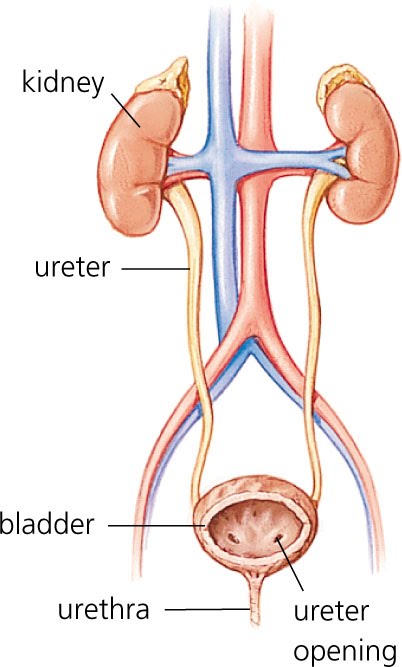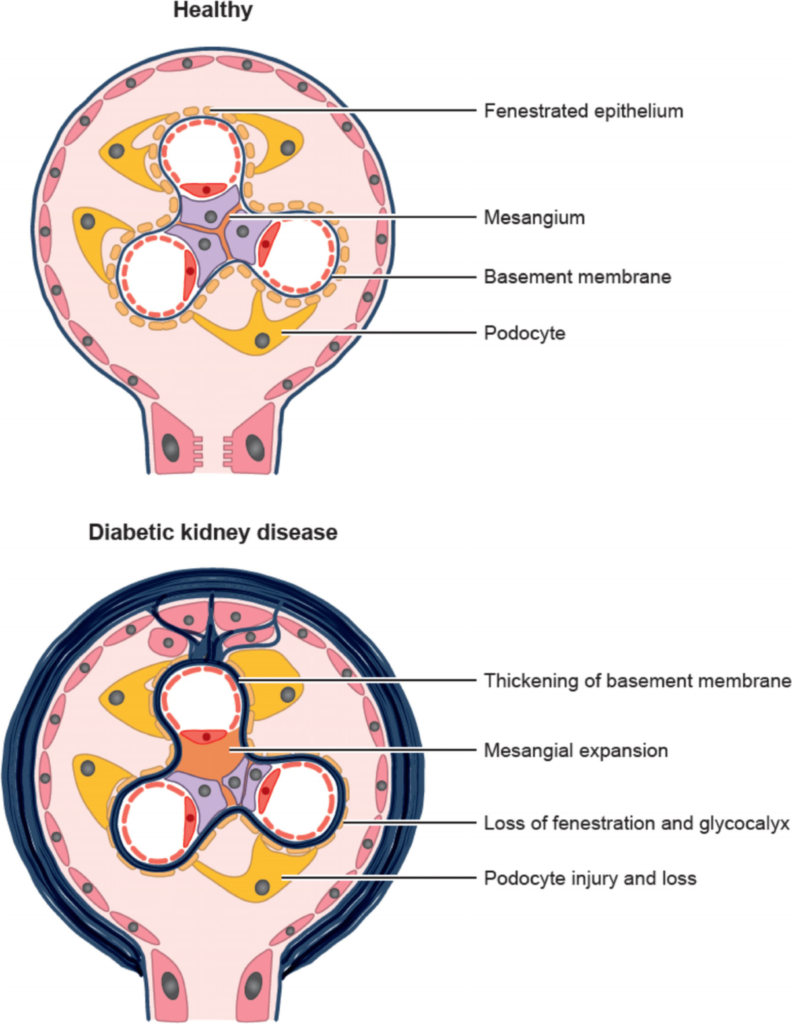Glomerular disease, Diabetic and Nondiabetic kidney disease treatment
.
Glomerular disease

What is glomerular disease?
Glomerular disease is a kidney condition that damages the tiny filters in your kidneys, known as glomeruli, where blood is filtered. When glomeruli are damaged, essential proteins like albumin can leak into your urine, instead of staying in your bloodstream. This protein loss can cause fluid buildup in the body, leading to swelling in areas like the face, hands, feet, or legs. In severe cases, glomerular disease can hinder the kidneys from effectively removing waste, leading to the accumulation of harmful substances in the blood. Early diagnosis and treatment are crucial in managing this condition.
What are the symptoms of glomerular disease?
The symptoms of glomerular disease vary depending on the extent of damage to your glomeruli. People with mild damage may experience few or no symptoms, while those with severe damage may notice more significant issues. Common symptoms include high blood pressure, which may worsen over time; swelling (edema) in areas like your hands, ankles, legs, and around your eyes; and weight gain due to fluid retention. Additionally, proteinuria, marked by foamy urine, and hematuria, where urine appears pink or cola-colored due to blood, are indicators. These signs can often be the first indicators of kidney disease.
What causes glomerular disease?
Diabetic kidney disease is a type of kidney disease caused by diabetes. Over time, high blood glucose levels can damage the glomeruli, the tiny filters in your kidneys. This damage can lead to several glomerular diseases, such as Focal Segmental Glomerulosclerosis (FSGS), which causes scar tissue in the kidneys, often due to genetic or autoimmune conditions. Lupus nephritis, another condition, results from systemic lupus erythematosus, leading to inflammation and scarring in the kidneys. Membranous nephropathy and IgA nephropathy are autoimmune diseases that cause antibody buildup in the glomeruli, causing inflammation. Other causes of glomerular disease include infections, certain medications, and genetic disorders. In some cases, the exact cause remains unknown, but early detection and management are crucial. need a quickly Need a quickly kidney disease treatment.
Diabetic and Nondiabetic kidney disease

What is Diabetic and Nondiabetic kidney disease?
Diabetic kidney disease occurs when high blood sugar damages the kidneys’ filtering system, leading to chronic kidney issues. It’s a common complication of diabetes. Non-diabetic kidney disease involves kidney damage from other causes like high blood pressure, infections, or genetic factors. Both types can lead to kidney failure if untreated, but their causes and treatments differ.
What are the symptoms of Diabetic and Nondiabetic kidney disease?
Symptoms of both diabetic and nondiabetic kidney disease include swelling in the legs, ankles, or face, fatigue, difficulty concentrating, decreased urine output, and persistent nausea. Diabetic kidney disease may also involve high blood sugar levels, while nondiabetic kidney disease could be linked to other conditions like high blood pressure or infections. Both require prompt medical attention.
What causes Diabetic and Nondiabetic kidney disease Treatment?
Diabetic kidney disease is caused by high blood sugar levels over time, which damage the blood vessels in the kidneys, affecting their ability to filter waste. This condition, called diabetic nephropathy, often develops after years of uncontrolled diabetes, leading to kidney failure if untreated.
Non-diabetic kidney disease can result from various factors like high blood pressure, which also damages kidney blood vessels, and conditions like glomerulonephritis, where the kidney’s filtering units become inflamed. Other causes include polycystic kidney disease, where cysts grow in the kidneys, and recurrent urinary tract infections that affect kidney function. Both diabetic and non-diabetic kidney diseases can lead to chronic kidney disease, requiring early diagnosis and management to prevent severe complications.
